- Home
- J. K. Rowling
The Goblet of Fire
The Goblet of Fire Read online
HARRY
POTTER
and the Goblet of Fire
J.K. ROWLING
All rights reserved; no part of this publication may be reproduced or transmitted by any means, electronic, mechanical, photocopying or otherwise, without the prior permission of the publisher
This digital edition first published by Pottermore Limited in 2012
First published in print in Great Britain in 2000 by Bloomsbury Publishing Plc
Copyright © J.K. Rowling 2000
Cover illustrations by Claire Melinsky copyright © J.K. Rowling 2010
Harry Potter characters, names and related indicia are trademarks of and © Warner Bros. Ent.
The moral right of the author has been asserted
A CIP catalogue record of this book is available from the British Library
ISBN 978-1-78110-010-3
www.pottermore.com
by J.K. Rowling
The unique online experience built around the Harry Potter books. Share and participate in the stories, showcase your own Potter-related creativity and discover even more about the world of Harry Potter from the author herself.
Visit pottermore.com
To Peter Rowling,
in memory of Mr Ridley
and to Susan Sladden,
who helped Harry out of his cupboard
CONTENTS
ONE
The Riddle House
TWO
The Scar
THREE
The Invitation
FOUR
Back to The Burrow
FIVE
Weasleys’ Wizard Wheezes
SIX
The Portkey
SEVEN
Bagman and Crouch
EIGHT
The Quidditch World Cup
NINE
The Dark Mark
TEN
Mayhem at the Ministry
ELEVEN
Aboard the Hogwarts Express
TWELVE
The Triwizard Tournament
THIRTEEN
Mad-Eye Moody
FOURTEEN
The Unforgivable Curses
FIFTEEN
Beauxbatons and Durmstrang
SIXTEEN
The Goblet of Fire
SEVENTEEN
The Four Champions
EIGHTEEN
The Weighing of the Wands
NINETEEN
The Hungarian Horntail
TWENTY
The First Task
TWENTY-ONE
The House-Elf Liberation Front
TWENTY-TWO
The Unexpected Task
TWENTY-THREE
The Yule Ball
TWENTY-FOUR
Rita Skeeter’s Scoop
TWENTY-FIVE
The Egg and the Eye
TWENTY-SIX
The Second Task
TWENTY-SEVEN
Padfoot Returns
TWENTY-EIGHT
The Madness of Mr Crouch
TWENTY-NINE
The Dream
THIRTY
The Pensieve
THIRTY-ONE
The Third Task
THIRTY-TWO
Flesh, Blood and Bone
THIRTY-THREE
The Death Eaters
THIRTY-FOUR
Priori Incantatem
THIRTY-FIVE
Veritaserum
THIRTY-SIX
The Parting of the Ways
THIRTY-SEVEN
The Beginning
— CHAPTER ONE —
The Riddle House
The villagers of Little Hangleton still called it ‘the Riddle House’, even though it had been many years since the Riddle family had lived there. It stood on a hill overlooking the village, some of its windows boarded, tiles missing from its roof, and ivy spreading unchecked over its face. Once a fine-looking manor, and easily the largest and grandest building for miles around, the Riddle House was now damp, derelict and unoccupied.
The Little Hangletons all agreed that the old house was ‘creepy’. Half a century ago, something strange and horrible had happened there, something that the older inhabitants of the village still liked to discuss when topics for gossip were scarce. The story had been picked over so many times, and had been embroidered in so many places, that nobody was quite sure what the truth was any more. Every version of the tale, however, started in the same place: fifty years before, at daybreak on a fine summer’s morning, when the Riddle House had still been well kept and impressive, and a maid had entered the drawing room to find all three Riddles dead.
The maid had run screaming down the hill into the village, and roused as many people as she could.
‘Lying there with their eyes wide open! Cold as ice! Still in their dinner things!’
The police were summoned, and the whole of Little Hangleton had seethed with shocked curiosity and ill-disguised excitement. Nobody wasted their breath pretending to feel very sad about the Riddles, for they had been most unpopular. Elderly Mr and Mrs Riddle had been rich, snobbish and rude, and their grown-up son, Tom, had been even more so. All the villagers cared about was the identity of their murderer – plainly, three apparently healthy people did not all drop dead of natural causes on the same night.
The Hanged Man, the village pub, did a roaring trade that night; the whole village had turned out to discuss the murders. They were rewarded for leaving their firesides when the Riddles’ cook arrived dramatically in their midst, and announced to the suddenly silent pub that a man called Frank Bryce had just been arrested.
‘Frank!’ cried several people. ‘Never!’
Frank Bryce was the Riddles’ gardener. He lived alone in a run-down cottage in the Riddle House grounds. Frank had come back from the war with a very stiff leg and a great dislike of crowds and loud noises, and had been working for the Riddles ever since.
There was a rush to buy the cook drinks, and hear more details.
‘Always thought he was odd,’ she told the eagerly listening villagers, after her fourth sherry. ‘Unfriendly, like. I’m sure if I’ve offered him a cuppa once, I’ve offered it a hundred times. Never wanted to mix, he didn’t.’
‘Ah, now,’ said a woman at the bar, ‘he had a hard war, Frank, he likes the quiet life. That’s no reason to –’
‘Who else had a key to the back door, then?’ barked the cook. ‘There’s been a spare key hanging in the gardener’s cottage far back as I can remember! Nobody forced the door last night! No broken windows! All Frank had to do was creep up to the big house while we was all sleeping …’
The villagers exchanged dark looks.
‘I always thought he had a nasty look about him, right enough,’ grunted a man at the bar.
‘War turned him funny, if you ask me,’ said the landlord.
‘Told you I wouldn’t like to get on the wrong side of Frank, didn’t I, Dot?’ said an excited woman in the corner.
‘Horrible temper,’ said Dot, nodding fervently, ‘I remember, when he was a kid …’
By the following morning, hardly anyone in Little Hangleton doubted that Frank Bryce had killed the Riddles.
But over in the neighbouring town of Great Hangleton, in the dark and dingy police station, Frank was stubbornly repeating, again and again, that he was innocent, and that the only person he had seen near the house on the day of the Riddles’ deaths had been a teenage boy, a stranger, dark-haired and pale. Nobody else in the village had seen any such boy, and the police were quite sure that Frank had invented him.
Then, just when things were looking very serious for Frank, the report on the Riddles’ bodies came back and changed everything.
The police had never read an odder report. A team
of doctors had examined the bodies, and had concluded that none of the Riddles had been poisoned, stabbed, shot, strangled, suffocated or (as far as they could tell) harmed at all. In fact, the report continued, in a tone of unmistakable bewilderment, the Riddles all appeared to be in perfect health – apart from the fact that they were all dead. The doctors did note (as though determined to find something wrong with the bodies) that each of the Riddles had a look of terror upon his or her face – but as the frustrated police said, whoever heard of three people being frightened to death?
As there was no proof that the Riddles had been murdered at all, the police were forced to let Frank go. The Riddles were buried in the Little Hangleton churchyard, and their graves remained objects of curiosity for a while. To everyone’s surprise, and amidst a cloud of suspicion, Frank Bryce returned to his cottage in the grounds of the Riddle House.
‘’S’far as I’m concerned, he killed them, and I don’t care what the police say,’ said Dot in the Hanged Man. ‘And if he had any decency, he’d leave here, knowing as how we knows he did it.’
But Frank did not leave. He stayed to tend the garden for the next family who lived in the Riddle House, and then the next – for neither family stayed long. Perhaps it was partly because of Frank that each new owner said there was a nasty feeling about the place, which, in the absence of inhabitants, started to fall into disrepair.
*
The wealthy man who owned the Riddle House these days neither lived there nor put it to any use; they said in the village that he kept it for ‘tax reasons’, though nobody was very clear what these might be. The wealthy owner continued to pay Frank to do the gardening, however. Frank was nearing his seventy-seventh birthday now, very deaf, his bad leg stiffer than ever, but could be seen pottering around the flowerbeds in fine weather, even though the weeds were starting to creep up on him.
Weeds were not the only things Frank had to contend with, either. Boys from the village made a habit of throwing stones through the windows of the Riddle House. They rode their bicycles over the lawns Frank worked so hard to keep smooth. Once or twice, they broke into the old house for a dare. They knew that old Frank was devoted to the house and grounds, and it amused them to see him limping across the garden, brandishing his stick and yelling croakily at them. Frank, on his part, believed the boys tormented him because they, like their parents and grandparents, thought him a murderer. So when Frank awoke one night in August, and saw something very odd up at the old house, he merely assumed that the boys had gone one step further in their attempts to punish him.
It was Frank’s bad leg that woke him; it was paining him worse than ever in his old age. He got up and limped downstairs into the kitchen, with the idea of re-filling his hot-water bottle to ease the stiffness in his knee. Standing at the sink, filling the kettle, he looked up at the Riddle House and saw lights glimmering in its upper windows. Frank knew at once what was going on. The boys had broken into the house again, and judging by the flickering quality of the light, they had started a fire.
Frank had no telephone, and in any case, he had deeply mistrusted the police ever since they had taken him in for questioning about the Riddles’ deaths. He put down the kettle at once, hurried back upstairs as fast as his bad leg would allow, and was soon back in his kitchen, fully dressed and removing a rusty old key from its hook by the door. He picked up his walking stick, which was propped against the wall, and set off into the night.
The front door of the Riddle House bore no sign of being forced, and nor did any of the windows. Frank limped around to the back of the house until he reached a door almost completely hidden by ivy, took out the old key, put it into the lock and opened the door noiselessly.
He had let himself into the cavernous kitchen. Frank had not entered it for many years; nevertheless, although it was very dark, he remembered where the door into the hall was, and he groped his way towards it, his nostrils full of the smell of decay, ears pricked for any sound of footsteps or voices from overhead. He reached the hall, which was a little lighter owing to the large mullioned windows either side of the front door, and started to climb the stairs, blessing the dust which lay thick upon the stone, because it muffled the sound of his feet and stick.
On the landing, Frank turned right, and saw at once where the intruders were: at the very end of the passage a door stood ajar, and a flickering light shone through the gap, casting a long sliver of gold across the black floor. Frank edged closer and closer, grasping his walking stick firmly. Several feet from the entrance, he was able to see a narrow slice of the room beyond.
The fire, he now saw, had been lit in the grate. This surprised him. He stopped moving and listened intently, for a man’s voice spoke within the room; it sounded timid and fearful.
‘There is a little more in the bottle, my Lord, if you are still hungry.’
‘Later,’ said a second voice. This, too, belonged to a man – but it was strangely high-pitched, and cold as a sudden blast of icy wind. Something about that voice made the sparse hairs on the back of Frank’s neck stand up. ‘Move me closer to the fire, Wormtail.’
Frank turned his right ear towards the door, the better to hear. There came the chink of a bottle being put down upon some hard surface, and then the dull scraping noise of a heavy chair being dragged across the floor. Frank caught a glimpse of a small man, his back to the door, pushing the chair into place. He was wearing a long black cloak, and there was a bald patch at the back of his head. Then he disappeared from sight again.
‘Where is Nagini?’ said the cold voice.
‘I – I don’t know, my Lord,’ said the first voice nervously. ‘She set out to explore the house, I think …’
‘You will milk her before we retire, Wormtail,’ said the second voice. ‘I will need feeding in the night. The journey has tired me greatly.’
Brow furrowed, Frank inclined his good ear still closer to the door, listening very hard. There was a pause, and then the man called Wormtail spoke again.
‘My Lord, may I ask how long we are going to stay here?’
‘A week,’ said the cold voice. ‘Perhaps longer. The place is moderately comfortable, and the plan cannot proceed yet. It would be foolish to act before the Quidditch World Cup is over.’
Frank inserted a gnarled finger into his ear and rotated it. Owing, no doubt, to a build-up of earwax, he had heard the word ‘Quidditch’, which was not a word at all.
‘The – the Quidditch World Cup, my Lord?’ said Wormtail. (Frank dug his finger still more vigorously into his ear.) ‘Forgive me, but – I do not understand – why should we wait until the World Cup is over?’
‘Because, fool, at this very moment wizards are pouring into the country from all over the world, and every meddler from the Ministry of Magic will be on duty, on the watch for signs of unusual activity, checking and double-checking identities. They will be obsessed with security, lest the Muggles notice anything. So we wait.’
Frank stopped trying to clear his ear out. He had distinctly heard the words ‘Ministry of Magic’, ‘wizards’ and ‘Muggles’. Plainly, each of these expressions meant something secret, and Frank could think of only two sorts of people who would speak in code – spies and criminals. Frank tightened his hold on his walking stick once more, and listened more closely still.
‘Your Lordship is still determined, then?’ Wormtail said quietly.
‘Certainly I am determined, Wormtail.’ There was a note of menace in the cold voice now.
A slight pause followed – and then Wormtail spoke, the words tumbling from him in a rush, as though he was forcing himself to say this before he lost his nerve.
‘It could be done without Harry Potter, my Lord.’
Another pause, more protracted, and then –
‘Without Harry Potter?’ breathed the second voice softly. ‘I see …’
‘My Lord, I do not say this out of concern for the boy!’ said Wormtail, his voice rising squeakily. ‘The boy is nothing to me, nothing a
t all! It is merely that if we were to use another witch or wizard – any wizard – the thing could be done so much more quickly! If you allowed me to leave you for a short while – you know that I can disguise myself most effectively – I could be back here in as little as two days with a suitable person –’
‘I could use another wizard,’ said the second voice softly, ‘that is true …’
‘My Lord, it makes sense,’ said Wormtail, sounding thoroughly relieved now, ‘laying hands on Harry Potter would be so difficult, he is so well protected –’
‘And so you volunteer to go and fetch me a substitute? I wonder … perhaps the task of nursing me has become wearisome for you, Wormtail? Could this suggestion of abandoning the plan be nothing more than an attempt to desert me?’
‘My Lord! I – I have no wish to leave you, none at all –’
‘Do not lie to me!’ hissed the second voice. ‘I can always tell, Wormtail! You are regretting that you ever returned to me. I revolt you. I see you flinch when you look at me, feel you shudder when you touch me …’
‘No! My devotion to your Lordship –’
‘Your devotion is nothing more than cowardice. You would not be here if you had anywhere else to go. How am I to survive without you, when I need feeding every few hours? Who is to milk Nagini?’
‘But you seem so much stronger, my Lord –’
‘Liar,’ breathed the second voice. ‘I am no stronger, and a few days alone would be enough to rob me of the little health I have regained under your clumsy care. Silence!’
Wormtail, who had been spluttering incoherently, fell silent at once. For a few seconds, Frank could hear nothing but the fire crackling. Then the second man spoke once more, in a whisper that was almost a hiss.

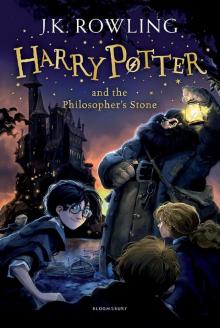 Harry Potter and the Philosophers Stone
Harry Potter and the Philosophers Stone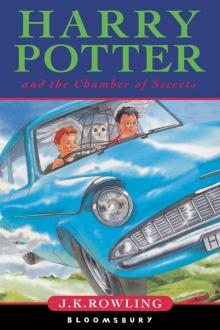 Harry Potter and the Chamber of Secrets
Harry Potter and the Chamber of Secrets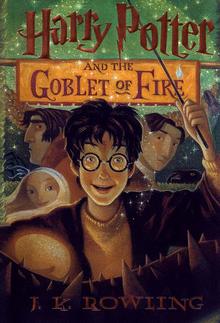 Harry Potter and the Goblet of Fire
Harry Potter and the Goblet of Fire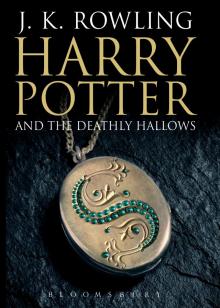 Harry Potter and the Deathly Hallows
Harry Potter and the Deathly Hallows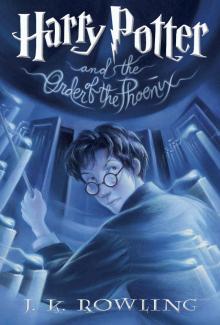 Harry Potter and the Order of the Phoenix
Harry Potter and the Order of the Phoenix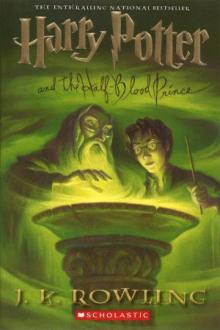 Harry Potter and the Half-Blood Prince
Harry Potter and the Half-Blood Prince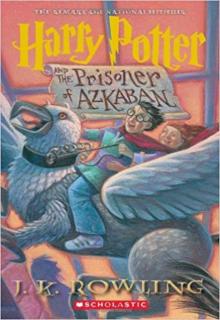 Harry Potter and the Prisoner of Azkaban
Harry Potter and the Prisoner of Azkaban Fantastic Beasts and Where to Find Them
Fantastic Beasts and Where to Find Them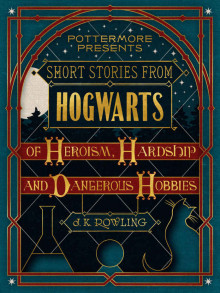 Short Stories from Hogwarts of Heroism, Hardship and Dangerous Hobbies
Short Stories from Hogwarts of Heroism, Hardship and Dangerous Hobbies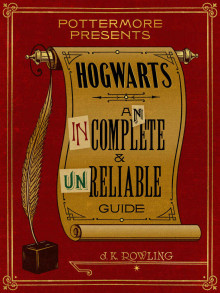 Hogwarts: An Incomplete and Unreliable Guide
Hogwarts: An Incomplete and Unreliable Guide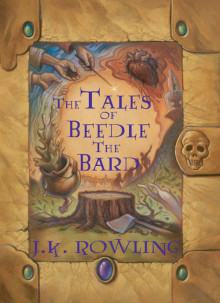 The Tales of Beedle the Bard
The Tales of Beedle the Bard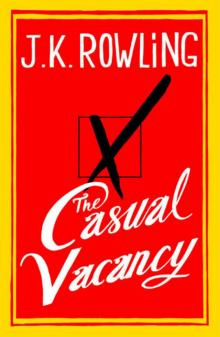 The Casual Vacancy
The Casual Vacancy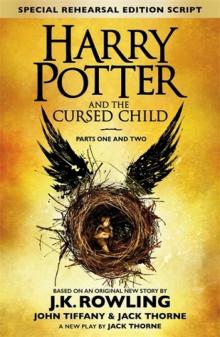 Harry Potter and the Cursed Child
Harry Potter and the Cursed Child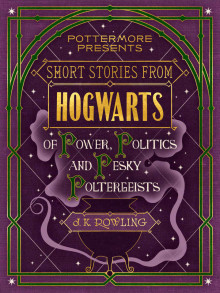 Short Stories from Hogwarts of Power, Politics and Pesky Poltergeists
Short Stories from Hogwarts of Power, Politics and Pesky Poltergeists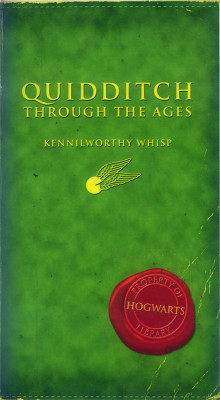 Quidditch Through the Ages
Quidditch Through the Ages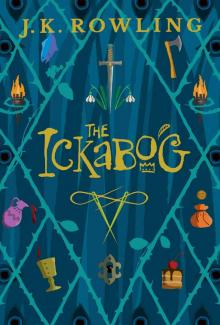 The Ickabog
The Ickabog![Fantastic Beasts, The Crimes of Grindelwald [UK] Read online](http://i1.bookreadfree.com/i/03/19/fantastic_beasts_the_crimes_of_grindelwald_uk_preview.jpg) Fantastic Beasts, The Crimes of Grindelwald [UK]
Fantastic Beasts, The Crimes of Grindelwald [UK]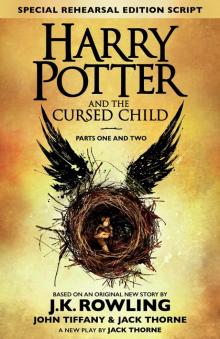 Harry Potter and the Cursed Child: Parts One and Two
Harry Potter and the Cursed Child: Parts One and Two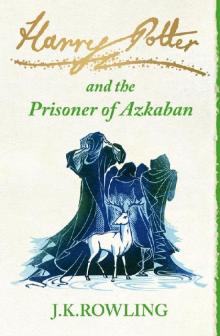 The Prisoner of Azkaban
The Prisoner of Azkaban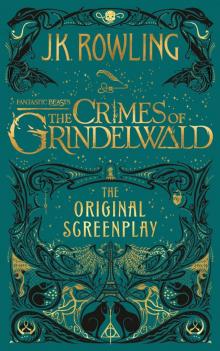 Fantastic Beasts: The Crimes of Grindelwald
Fantastic Beasts: The Crimes of Grindelwald The Hogwarts Library Collection
The Hogwarts Library Collection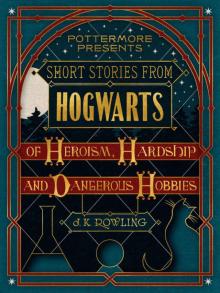 Short Stories from Hogwarts of Heroism, Hardship and Dangerous Hobbies (Kindle Single) (Pottermore Presents)
Short Stories from Hogwarts of Heroism, Hardship and Dangerous Hobbies (Kindle Single) (Pottermore Presents)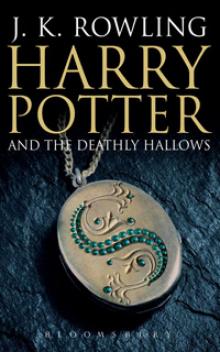 Harry Potter and the Deathly Hallows hp-7
Harry Potter and the Deathly Hallows hp-7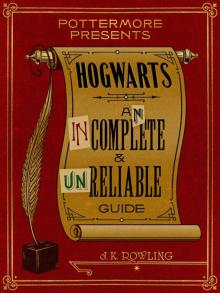 Hogwarts: An Incomplete and Unreliable Guide (Kindle Single) (Pottermore Presents)
Hogwarts: An Incomplete and Unreliable Guide (Kindle Single) (Pottermore Presents)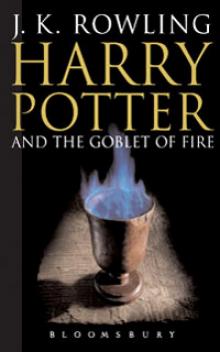 Harry Potter and the Goblet of Fire hp-4
Harry Potter and the Goblet of Fire hp-4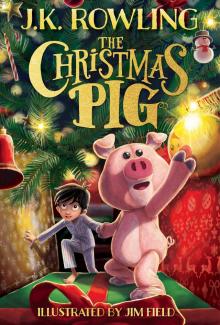 The Christmas Pig
The Christmas Pig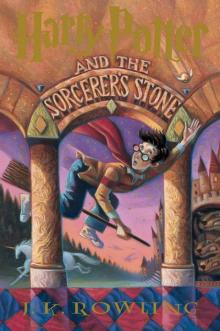 Harry Potter and the Sorcerer's Stone
Harry Potter and the Sorcerer's Stone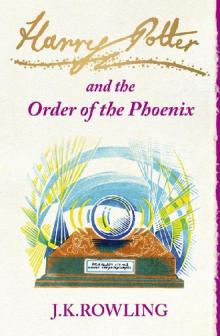 The Order of the Phoenix
The Order of the Phoenix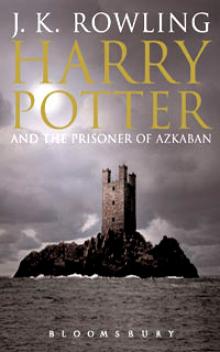 Harry Potter and the Prisoner of Azkaban hp-3
Harry Potter and the Prisoner of Azkaban hp-3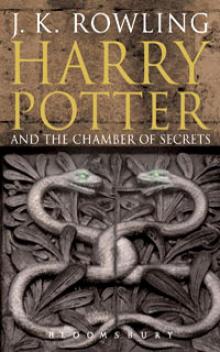 Harry Potter and the Chamber of Secrets hp-2
Harry Potter and the Chamber of Secrets hp-2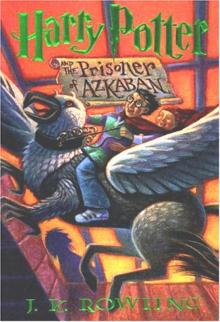 HP 3 - Harry Potter and the Prisoner of Azkaban
HP 3 - Harry Potter and the Prisoner of Azkaban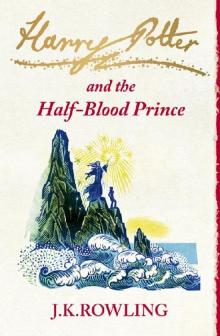 The Half-Blood Prince
The Half-Blood Prince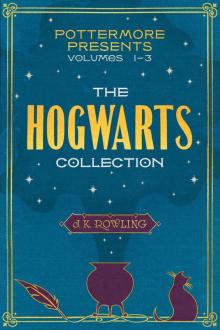 The Hogwarts Collection
The Hogwarts Collection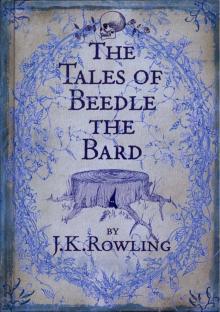 Tales of Beedle the Bard
Tales of Beedle the Bard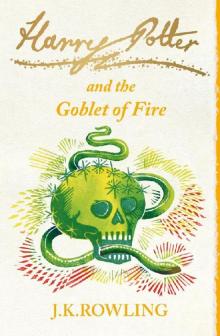 The Goblet of Fire
The Goblet of Fire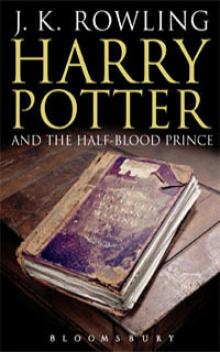 Harry Potter and the Half-Blood Prince hp-6
Harry Potter and the Half-Blood Prince hp-6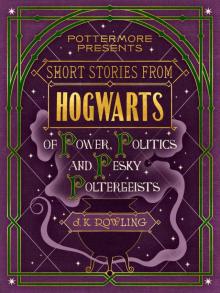 Short Stories from Hogwarts of Power, Politics and Pesky Poltergeists (Kindle Single) (Pottermore Presents)
Short Stories from Hogwarts of Power, Politics and Pesky Poltergeists (Kindle Single) (Pottermore Presents)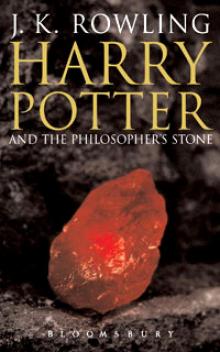 Harry Potter and the Sorcerer's Stone hp-1
Harry Potter and the Sorcerer's Stone hp-1